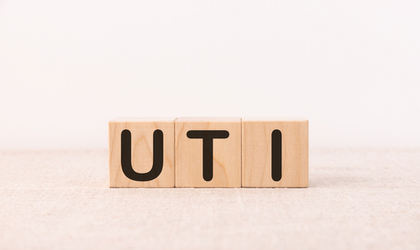
There are many reasons women dread menstruation each month. Mood swings, breakouts, cravings, and, yes, period discomfort. The standard medical advice to take over the counter medication and ‘get on with it’ now feels outdated. Here, we take a look at how to manage menstrual discomfort naturally.
What causes period discomfort?m
Period discomfort occurs when the womb wall contracts to help with the shedding of the womb lining (1). As your womb tightens, it compresses the blood vessels in your womb, which temporarily cuts off the blood and oxygen supply. And without oxygen, your womb tissue releases chemicals that trigger discomfort.
At the same time, your body also produces prostaglandins, chemicals that make the womb muscle contract more, increasing discomfort and resulting in that famous abdominal discomfort.
How common is period discomfort?
Period discomfort is common, however, the experience and symptoms are unique to each individual. Around nine out of 10 women suffer from period discomfort, with 57% admitting symptoms have affected their ability to work (2).
How to help period discomfort
As we explore below, there are plenty of ways to support menstrual discomfort naturally.
Exercise for period discomfort
Although you may struggle to muster up the energy to work out before your period, exercising releases feel-good, mood-loving endorphins, which can help manage some symptoms. The latest Cochrane evidence suggests both low-intensity exercise, such as walking, and high-intensity activity, like aerobics, may reduce menstrual discomfort (3).
So, if you feel up to it, exercising in whatever way that feels intuitive when on your period. But always check in with how you’re feeling – and don’t push yourself. A simple walk can still work wonders if that’s all you can manage.
Can exercise make your period heavier?
Though you may be more of conscious your flow when working out, exercising doesn’t make your periods heavier. If anything, it may make them slightly lighter.
Regular exercise can lead to weight loss, which often brings about hormonal changes. Adipose tissue, or body fat, produces some oestrogen. And since excess oestrogen causes the lining of your uterus to thicken more than usual during the first half of your cycle, it can make menstrual bleeding heavier. For that reason, weight loss can decrease oestrogen, reducing the build-up of uterine lining that happens before menstruation and resulting in a lighter flow (4).
However, if you lose too much weight – and your oestrogen levels drop below optimal levels – your periods may stop altogether. Young athletes often experience this. That’s why maintaining a healthy weight is critical for a menstrual cycle.
Yoga for period discomfort
While movement of any kind is great, yoga has an especially esteemed reputation for menstrual discomfort. According to a 2017 review in The Journal of Alternative and Complementary Medicine, regular yoga is associated with lower discomfort scores (5). The analysis found that different asanas (poses), pranayama (breathing), and other relaxation techniques may help soothe symptoms associated with menstruation.
Breathing exercises for period discomfort
If you experience period discomfort, five to ten minutes of deep, belly breathing may be helpful. Conscious, diaphragmatic breathing targets abdominal discomfort in two ways: firstly, it activates your parasympathetic nervous system, which is responsible for your ‘rest and digest’ state; secondly, it acts as a distraction – when you focus on the breath, you divert your attention away from the discomfort.
A guide or an app isn’t essential here; just let your belly expand as you inhale fully through your nose and contracts as you slowly, gently exhale. Repeat for as long as you need.
Self-care on your period
Allowing yourself to indulge in a little self-care may also take your mind off the discomfort. Treat yourself to an at-home facial with relaxing essential oils, like geranium or lavender, unwind in front of your favourite TV show, chat with loved ones about how you feel, or simply prioritise rest and sleep.
Does heat help period discomfort?
Whether it's cuddling up with a hottie or taking a long bath, heat can offer instant relief from period discomfort. Heat brings blood flow to your pelvic area, which helps ease the muscles causing discomfort in the first place (6). Treating yourself to an indulgent soak in the tub can also help you unwind and decompress, which is great for your overall wellbeing at this stage of your cycle. You could even add Epsom salts and aromatherapy oils for the ultimate act of PMS TLC.
What foods help period discomfort?
Aside from lifestyle changes, increasing your intake of the following nutrients may also support your menstrual health.
Omega 3 and period discomfort
The omega-3 fatty acids found in oily fish are also widely used by women to support menstrual health. In one study, female volunteers received 1,080mg EPA and 720mg DHA daily for two months (7). The findings revealed women experienced significantly less period discomfort than those taking a placebo.
The NHS recommends eating at least two portions of oily fish a week to safeguard health and wellbeing. If you struggle to meet this, you may wish to take a high-quality fish oil supplement to cover any nutritional shortfalls. If, however, you’re vegan or don’t enjoy the taste of fish, we suggest taking our Flax Seed Oil 1000mg.
Magnesium muscle
Magnesium is a mineral known for its role in normal muscle function, and since the uterus is a muscular organ, it may be helpful to women throughout their cycle (8). Whole grains, green leafy veggies, dried beans, legumes, nuts, and dark chocolate are rich sources of magnesium. You can also find generous amounts of magnesium in Premtis, our specialist multi designed for menstruating women.
PEA power
Our PEA Complex includes vitamins B12, B6 and B1, all of which contribute to the normal functioning of the nervous system and normal psychological function, making it a helpful addition for women during this time.
Herbal remedies for period discomfort
Ginger for period discomfort
Ginger has long been used to support female health and wellbeing. This zingy spice may help promote the normal balance of inflammatory hormones (prostaglandins), offering women support at this time of the month. Add ginger to soups, curries, and smoothies, or take it in a high-strength supplement.
Although abdominal discomfort is a bothersome monthly occurrence for many women, there are still plenty of ways to ensure the arrival of your period is a little easier. If you want to learn more about supporting any aspect of women’s health, feel free to reach out to one of our expert Nutrition Advisors.
Want to find out more?
Read more of our resources on women’s health here. You can also reach out to our expert Nutrition Advice team to receive free nutrition advice. No matter how small your query, they’re happy to help.
FREE EXPERT NUTRITION ADVICE
Call: 01892 352927
Email: nutrition@naturesbest.co.uk<
Write: Nature’s Best Ltd. Century Place, Tunbridge Wells, Kent, TN2 3BE
References
-
Period discomfort (2022). Available online: https://www.nhs.uk/conditions/period-discomfort
-
Period discomfort makes it harder for most women to work. YouGov (2022). Available online: https://yougov.co.uk/topics/politics/articles-reports/2017/07/31/most-women-workers-have-found-it-harder-work-due-p
-
Armour M. et al., Exercise for dysmenorrhoea. Cochrane Database of Systematic Reviews. 2019; CD004142.
-
Mahajan. N., Sharma S., The endometrium in assisted reproductive technology: How thin is thin? J Hum Reprod Sci. 2016;9(1):3-8. doi:10.4103/0974-1208.178632.
-
Oates J., Exercise for dysmenorrhoea. Cochrane Database of Systematic Reviews. 2019; CD004142.
-
Jo. J., Lee S., Heat therapy for primary dysmenorrhea: A systematic review and meta-analysis of its effects on discomfort relief and quality of life. Scientific Reports. 2018;8(1).
-
Harel Z. et al., Supplementation with omega-3 polyunsaturated fatty acids in the management of dysmenorrhea in adolescents. Am J Obstet Gynecol. 1996; 174:1335-1338.
-
Posaci Z. et al., Plasma copper, zinc and magnesium levels in patients with premenstrual tension syndrome. Acta Obstet Gynecol Scand. 1994; 73(6): 452-5.
Related Posts
Disclaimer: The information presented by Nature's Best is for informational purposes only. It is based on scientific studies (human, animal, or in vitro), clinical experience, or traditional usage as cited in each article. The results reported may not necessarily occur in all individuals. Self-treatment is not recommended for life-threatening conditions that require medical treatment under a doctor's care. For many of the conditions discussed, treatment with prescription or over the counter medication is also available. Consult your doctor, practitioner, and/or pharmacist for any health problem and before using any supplements or before making any changes in prescribed medications.

Olivia
Olivia Salter has always been an avid health nut. After graduating from the University of Bristol, she began working for a nutritional consultancy where she discovered her passion for all things wellness-related. There, she executed much of the company’s content marketing strategy and found her niche in health writing, publishing articles in Women’s Health, Mind Body Green, Thrive and Psychologies.



